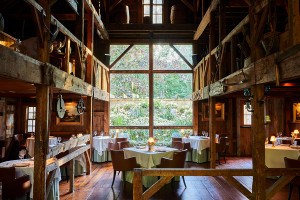Trillium Attempts to Move Past Cult Status
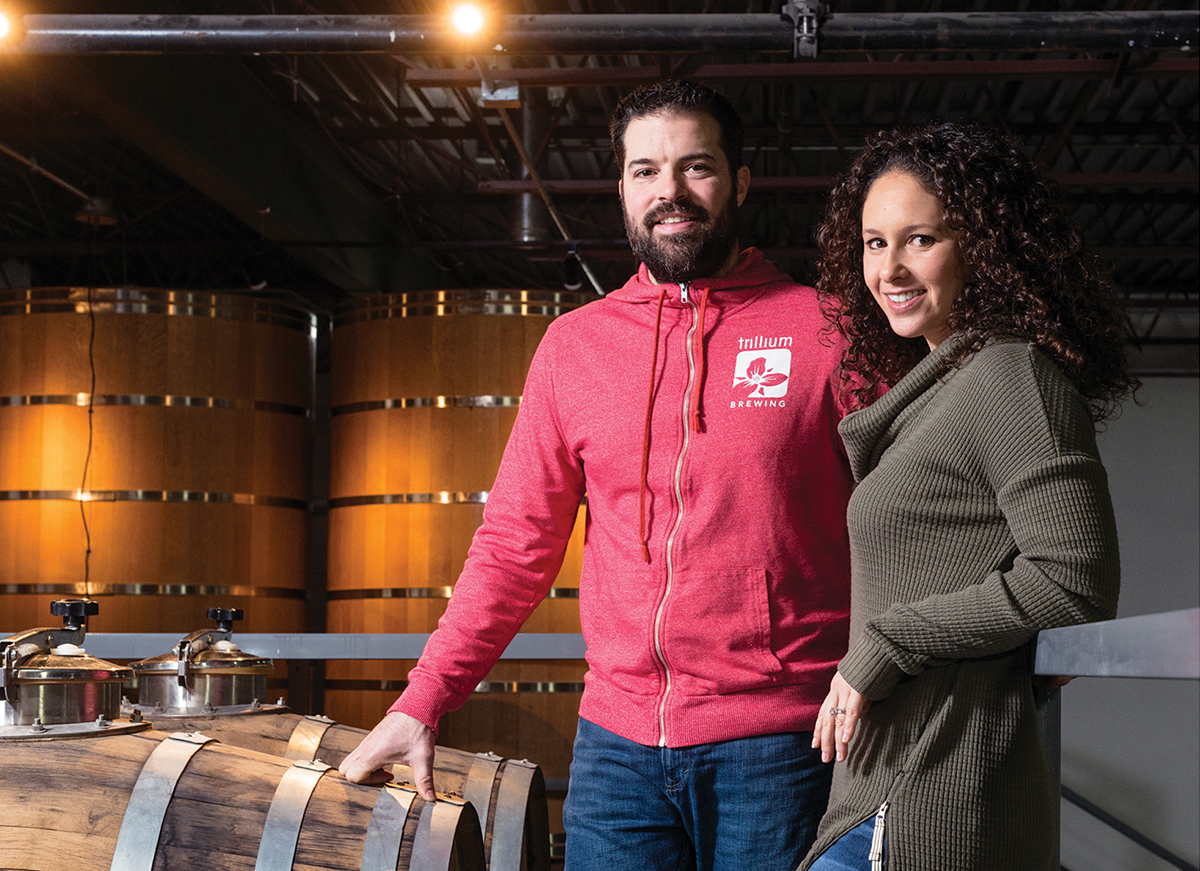
Trillium’s JC and Esther Tetreault in their new barreling mezzanine in Canton. / Photograph by Toan Trinh
Since opening their Fort Point brewery, Trillium, in 2013, JC and Esther Tetreault have earned international accolades and plenty of fans. But that acclaim has come with consequences, creating a nearly impossible-to-meet demand: During last year’s Extreme Beer Fest, for example, JC was forced to stand outside his facility like a dismal town crier, alerting the happy hordes to his brewery’s squandered supply of beer. More recently, customers from as far away as Philadelphia drove up for the chance to taste the new Raspberry Lineage, a barrel-aged wild saison with a minuscule 300-bottle run. Most left empty-handed.
To ease the strain, the husband-and-wife team just opened a 16,000-square-foot outpost in Canton where they’ll be able to produce more than 35,000 barrels of beer annually, up from 2,500 in their original location. The new facility will also house two retail spaces, which can accommodate 250 people, private parties, and, eventually, on-site imbibing.
But unlike other fast-growing breweries blurring the lines between “craft” and “corporate,” Trillium will limit production to a comfortable output. JC concedes that his Fort Point team of 12 is overworked, something he wants to avoid in Canton, even if it means producing at less than maximum capacity.
JC will continue to expand Trillium’s already-vast repertoire (he has developed more than 100 beers spanning dozens of styles)—something he sees as the future of the industry. “People don’t necessarily want to drink the same beer over and over again,” he says. “They want to have smaller pours and three or four different beers. That’s how people drink now, and that’s how we like to brew.”
Visitors in Canton will be able to taste as many as a dozen beers on draft, with several from Trillium’s new barrel mezzanine, where eight 30-barrel Foeders and 500 used wine and spirits barrels are dedicated to wild yeast projects such as the aforementioned Raspberry Lineage.
Despite Trillium’s expansion, the company’s brews will be limited to on-site sales and distribution to a handful of early advocates. It’s not that the Tetreaults don’t want to fill your fridge. If you talk with JC for more than half an hour, you’re bound to hear him repeat the mantra “We didn’t get into this business to say no to people.” But that doesn’t mean you won’t have to work for it.
UP CLOSE AND PERSONAL
It’s not just the expert craftsmanship that makes Trillium’s beers some of the most sought after in New England. Here, a breakdown of the distinctive touches that set them apart.
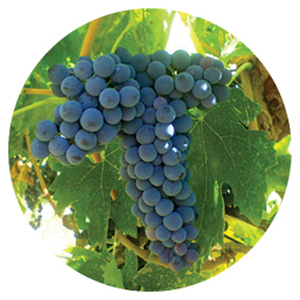
Yeast
For all of his recipes, JC Tetreault uses one of two custom yeast strains—one collected from wine grapes at the Connecticut vineyard where he was married, the other a blend from favorite beers such as Cantillon and Jolly Pumpkin.
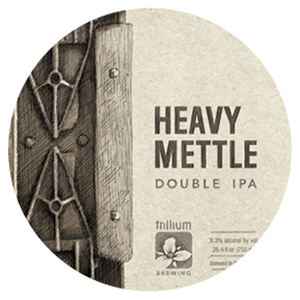
Labels
Trillium’s designs, created by close friend Kevin Cimo, refer to different landmarks around their two breweries.
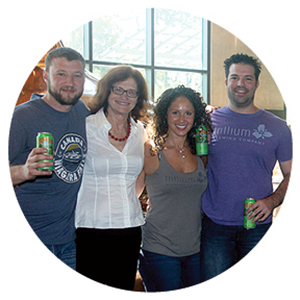
Guest Brewers
To thank early supporters, JC regularly invites friends and publicans from the likes of Publick House and Row 34 to craft collaborative beers.
Photographs by Johnnie Walker (grapes); courtesy of Trillium (label, portrait)

